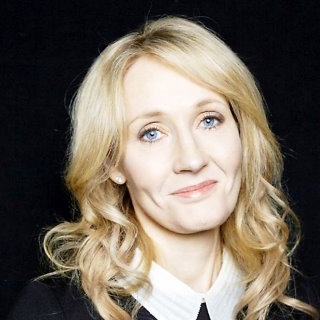
News

JK Rowling tackles anti-Semitism in the Twitterverse
JORDAN MOSHE
A heated tweet exchange started on Yom Hashoah (April 18), when Rowling challenged online anti-Semitic sentiments and assured some of her Jewish Twitter followers that they weren’t alone.
Wading into a debate on the heels of a tense discussion about anti-Semitism and the Labour Party, which took place in the UK Parliament on April 17, she tweeted: “Most UK Jews in my timeline are currently having to field this kind of crap, so perhaps some of us non-Jews should start shouldering the burden.”
Responding to a tweet about Judaism being a religion and not a race (thereby justifying criticism levelled against Jews), Rowling said: “Anti-Semites think this is a clever argument, so tell us, do: were atheist Jews exempted from wearing the yellow star? #antisemitism.”
Rowling, who has 14.4 million followers on Twitter, sounded exasperated when she highlighted this seemingly “innocent” post.
Presumably, the post added, this was a “defence” against being called racist.
Her comments came a day after a searing debate on anti-Semitism in Britain’s House of Commons, in which Jewish MPs described the years of abuse and insults received from both members of the public and their fellow politicians.
Just hours before, British comedian and novelist David Baddiel had received an abusive message in response to his thanking a woman who had enjoyed his one-man show, currently on tour in Durham.
Rowling had seen this online exchange and decided to intervene more generally a few hours later. Posting a screen shot of the comment, which attempted to justify anti-Jewish attitudes, Rowling responded with fervour.
Almost immediately, her post received 2 000 “likes” and hundreds of retweets, many of them from Jewish users of Twitter, thanking her for prompt intervention and support.
The tweet went on to attract further anti-Jewish responses, but Rowling called them all out, challenging anti-Semitic sentiments and explaining why they are offensive. To a Twitter follower who complained that rebutting anti-Semitism is “culturally insensitive” to Muslims, Rowling lambasted those who “only understand bigotry in terms of ‘pick a team’” instead of having empathy and being willing to engage in level-headed debate.
Nevertheless, the author came under further fire from certain Twitter users for daring to oppose anti-Semitism. When one follower complained that Arabs couldn’t possibly be called anti-Semites because they are a Semitic people too, Rowling responded with a verbal eye-roll, using an image of actor Hugh Laurie looking comically exasperated. “The ‘Arabs are semitic too’ hot takes have arrived,” Rowling tweeted, pointing out the bigotry of the tweet.
In an effort to set the record straight, Rowling went on to share a definition of anti-Semitism as: “Hostility to or prejudice against Jews.” She then added a few messages of her own: “Split hairs. Debate etymology. Gloss over the abuse of your fellow citizens by attacking another country’s government. Would your response to any other form of racism or bigotry be to squirm, deflect or justify?” she asked.
Rowling’s connection with world Jewry goes back some years. In 2014, after being questioned on Twitter about the absence of Jewish characters in her books, Rowling announced that there were, in fact, Jews at Hogwarts. Anthony Goldstein, a character who said very little but always did the right thing, was proclaimed to be Jewish. Rowling went on to announce that there were also Hogwarts students of every other religion.
Moreover, last week’s incident wasn’t the first time that the author has taken a stand against anti-Semitism.
Over a thousand British cultural figures penned open letters in 2015 in a national newspaper which berated Israel and pledged never to “play music, accept awards, attend exhibitions, festivals or conferences, run masterclasses or workshops” anywhere in the Jewish state. Rowling, however, refused to join this movement of letters demonising the Jewish state, instead adding her voice to 150 other British writers and artists who pledged to resist the calls to boycott Israel.
“Israelis will be right to ask why cultural boycotts are not also being proposed against… North Korea and Zimbabwe, whose leaders are not generally considered paragons by the international community,” Rowling and fellow signatories wrote in their letter, adding: “Cultural engagement builds bridges, nurtures freedom and positive movement for change.”
- Sources: Aish.com, Twitter, Ha’retz, Jewish News, The Shmooze




